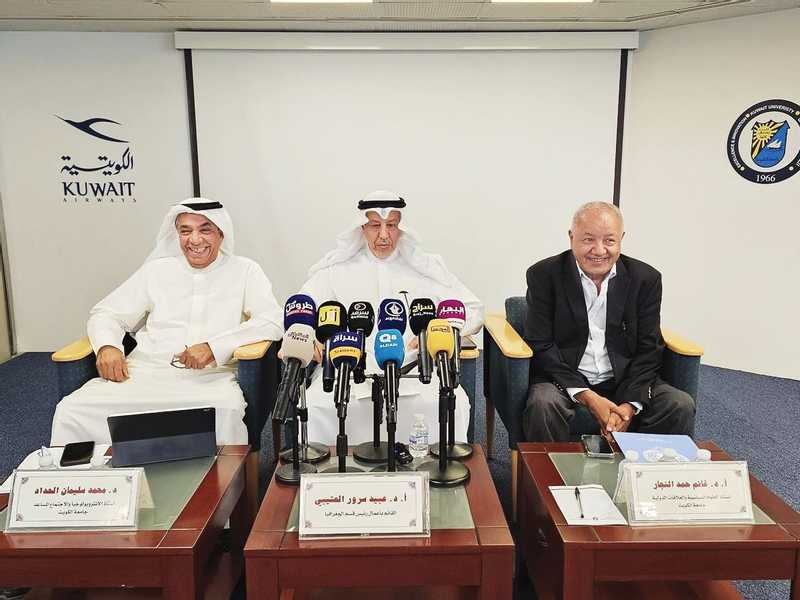28/09/2023
28/09/2023

KUWAIT CITY, Sept 28: Two scholars from the Kuwait University emphasized that the Khor Abdullah agreement signed between Kuwait and Iraq focuses on regulating navigation and is unrelated to border demarcation, reports Al-Qabas daily.
Dr. Ghanem Al-Najjar, a Professor of Political Science and International Relations, and Dr. Muhammad Al-Haddad, an Assistant Professor of Anthropology and Sociology, both agreed that Iraq is creating political crises with Kuwait to fulfill its ambitions or contain internal pressures.
During the symposium ‘Kuwait, Iraq, and the Gulf between them’ organized by the Center for Gulf and Arabian Peninsula Studies in collaboration with the Faculty of Social Sciences at the Kuwait University, the scholars stressed that the agreement had been ratified by both parties and deposited with the United Nations. They stated that the recent ruling by the Iraqi Federal Supreme Court, declaring the ratification of the agreement unconstitutional, did not address technical aspects and instead perpetuated false claims regarding Iraq's rights over Kuwait.
Dr. Al-Najjar highlighted that the primary issue in the Gulf region is water scarcity, and future conflicts are likely to be water-related. Kuwait, like many others, faces challenges due to a shortage of freshwater. He explained that crises between Kuwait and Iraq are primarily political and often revolve around water. Iraq tends to create crises whenever it harbors ambitions.
Dr. Al-Najjar recounted Kuwait's historical reliance on importing freshwater from the Shatt al-Arab, initially through transport ships and local distributors, and eventually through water distillation stations.
Regarding the "Khor Abdullah" agreement, Dr. Al-Najjar clarified that it is deposited with the United Nations, ratified, and pertains to regulating navigation, not border demarcation. He emphasized that historically, Iraq has no claim to Kuwait, and the disputes are sea-related rather than land-based.
He pointed out that concerns about Iraq persist in Kuwait due to repeated outbreaks of crises. Despite this, Kuwait has provided substantial aid to Iraq, including hospitals, schools, and various projects. The recent discussion on the Iraqi court's ruling regarding the Khor Abdullah Agreement has led to differing opinions even within Iraq.
Dr. Al-Najjar concluded by noting that despite Iraq sharing borders with six different countries, its most security-regulated border is with Kuwait, both on land and at sea.
Dr. Muhammad Al-Haddad, the professor of anthropology, further clarified that the "Khor Abdullah" agreement focuses on regulating navigation and does not pertain to maritime border demarcation. He highlighted the increasing importance of the Gulf beyond transportation and trade, emphasizing its significance as a reservoir of natural resources like oil and gas. Al-Haddad stressed that Kuwait is protected by international law, and its borders are clear and recognized by both parties. Kuwait has never violated Iraqi sovereignty and has instead provided significant aid. He attributed the tensions between Kuwait and Iraq to historical ethnic pluralism, often exploited in the context of national sovereignty, reinforcing that Kuwait is protected by international laws and should not fear Iraq.


